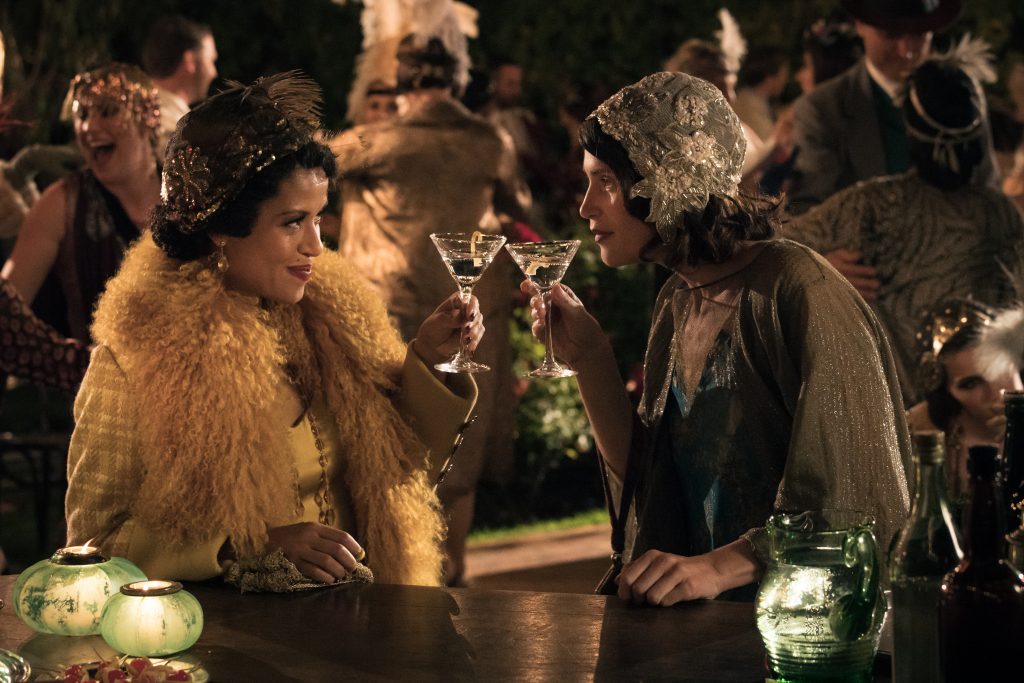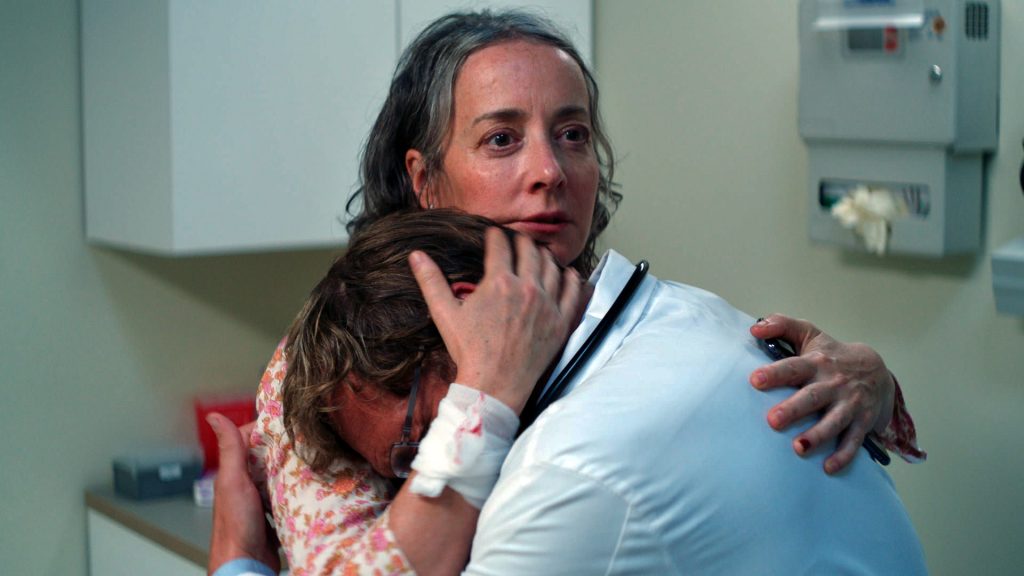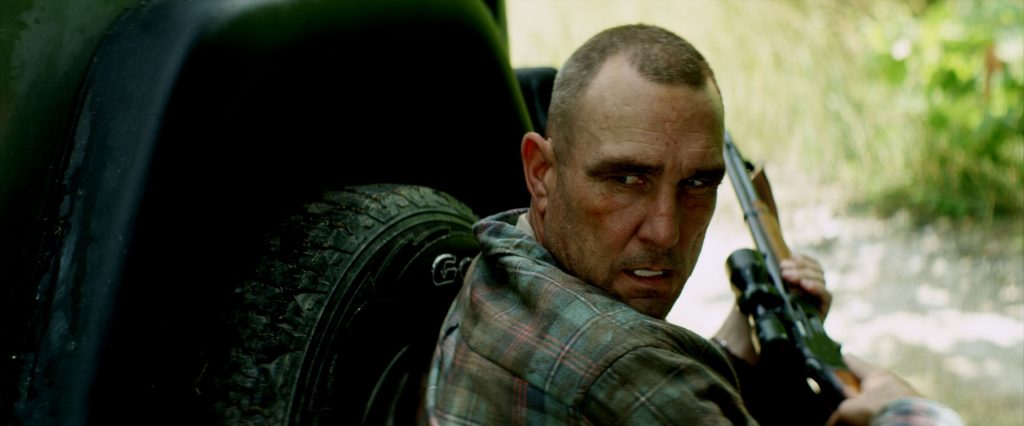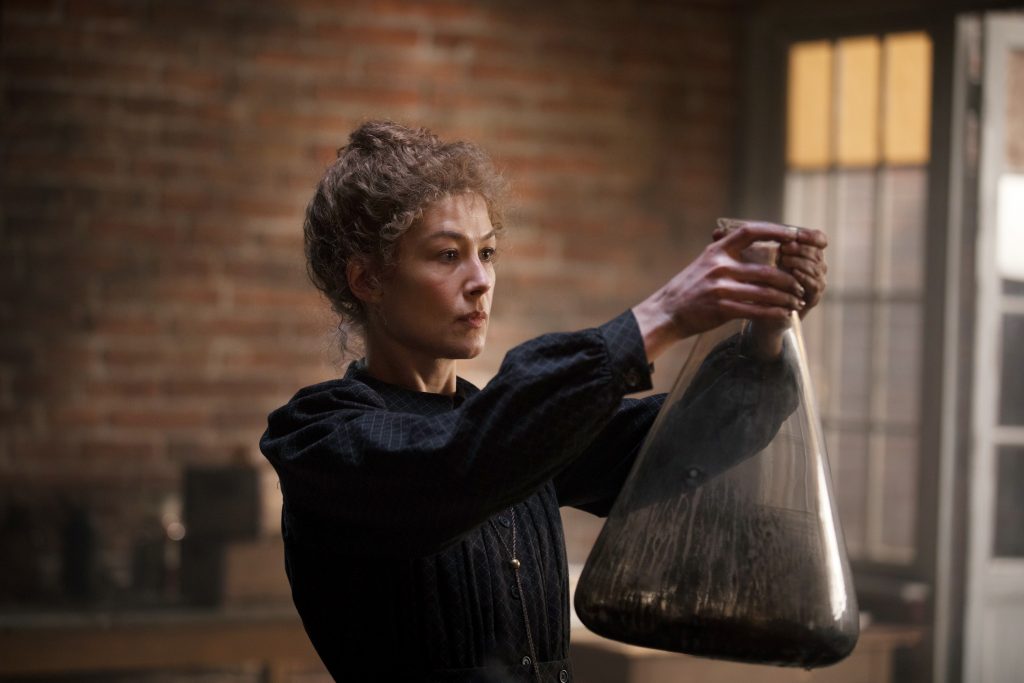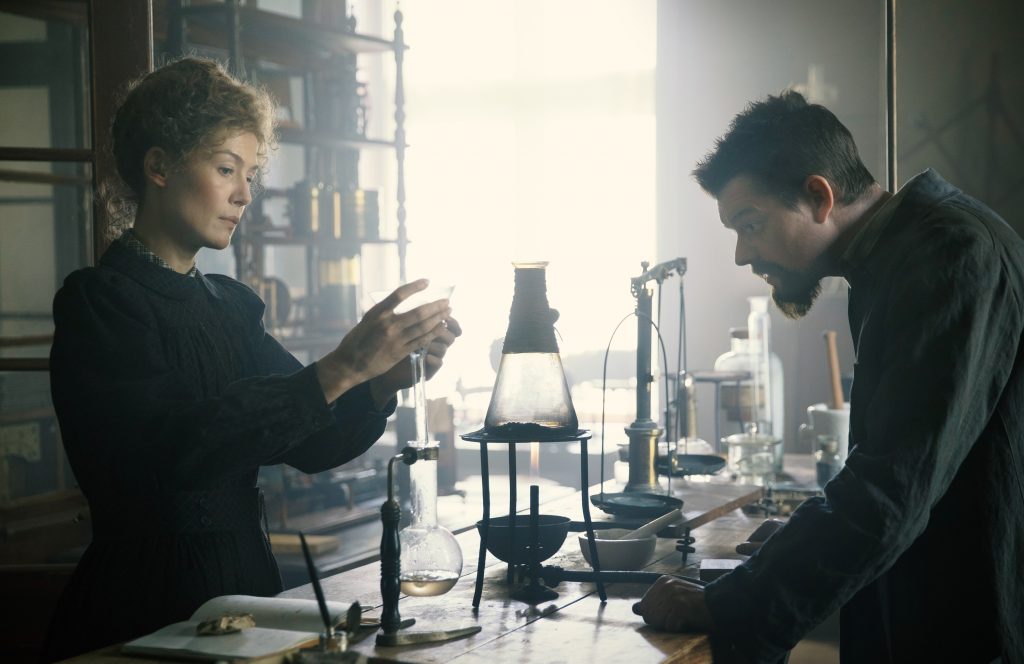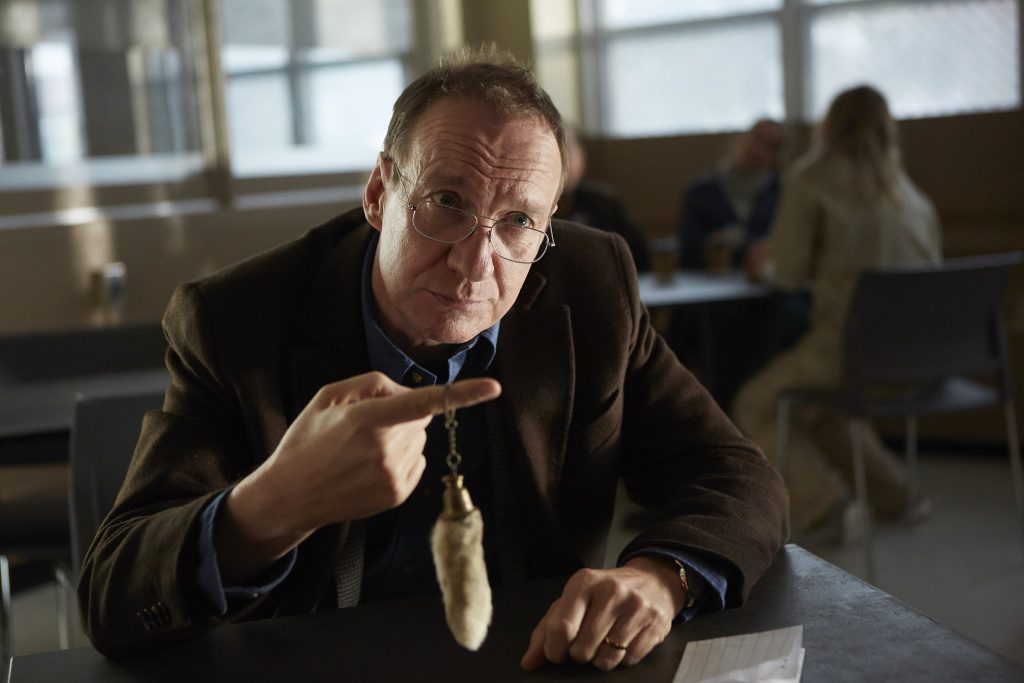August 5, 2020
by Carla Hay
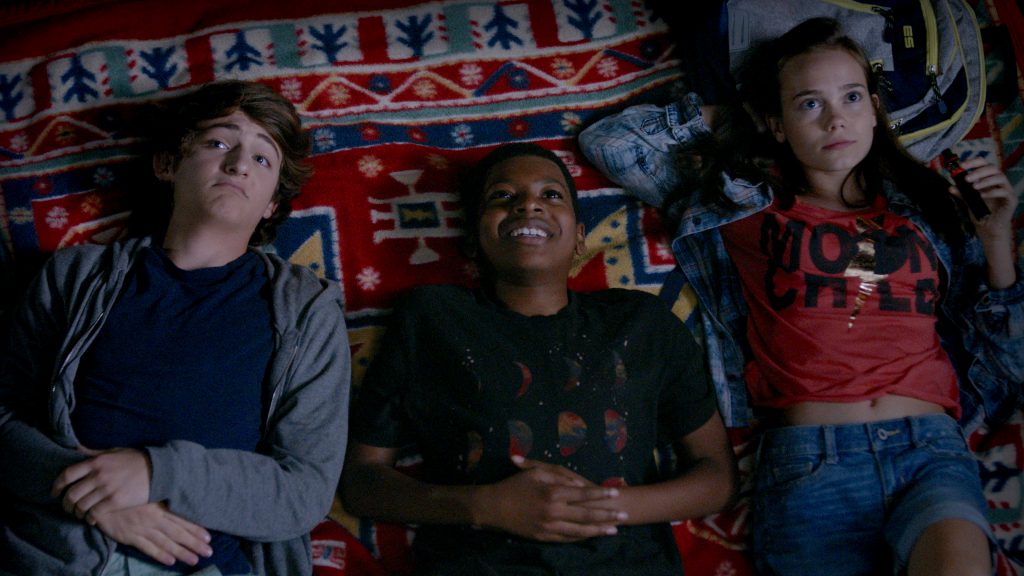
Directed by Ben Hickernell
Culture Representation: Taking place in Baltimore, the crime drama “What We Found” features a racially diverse cast (white and African American with a few Latinos and Asians) representing the upper-class, middle-class and criminal underground.
Culture Clash: After being harassed by a school bully, a nerdy teen enlists his two best friends to investigate the disappearance of one his female schoolmates who was romantically involved with the bully.
Culture Audience: “What We Found” will appeal primarily to people who like teen-oriented dramas that have formulaic tendencies.
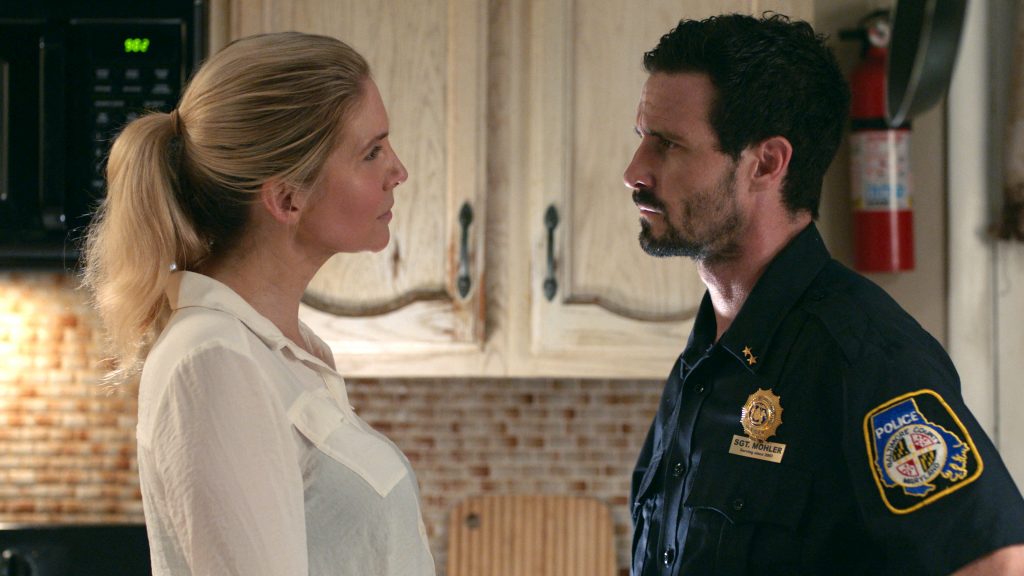
You know those young-adult mystery novels that have teenage sleuths who are better at solving crimes than the local police? The type of books that try to be classics like “Nancy Drew” and “The Hardy Boys” series, but end up being very forgettable? “What We Found” is the movie equivalent of those substandard novels. It’s a solidly acted drama, but the action-filled showdown at the end of the film stretches so much credibility that it ends up turning the film into a predictable and unimaginative dud.
Written and directed by Ben Hickernell, “What We Found” (which takes place in Baltimore) tells the tale of two worlds that collide: The relatively safe world of a middle-class public high school and the dangerous world of drug dealing. The story’s main protagonist is a smart science-and-tech whiz named Marcus Jackson (played by Jordan Hall), who has just started his freshman year at Goldspring High School.
Marcus has led somewhat of a sheltered existence with his widowed mother Alex Jackson (played by Yetide Badaki), who is very protective of her only child. Marcus’ two best friends are feisty Holly (played by Oona Laurence) and privileged Grant (played by Julian Shatkin). Holly and Marcus are in the same freshman class at Goldspring High School, which has a reputation for having tougher students than Keatonsville Middle School, where Marcus and Holly previously attended. Grant, who’s about two years older than Marcus and Holly, goes to a private school and drives a Porsche, but he doesn’t let his wealth and older age get in the way of their friendship.
Holly has a very unhappy life at home, because her parents Art (played by Shannon Brown) and Bridget (played Sunny Edelman) are constantly arguing, and Art physically abuses Bridget. Grant’s parents seem to have a happy marriage, and they indulge in some vices. Grant tells Holly and Marcus that his parents have “date nights” where they like to get stoned. On one of those nights, Grant has taken some of his parents’ marijuana for the three friends to sneak off somewhere and smoke.
While the three pals sit around and smoke outside in a deserted hangout area, they look at the stars and Marcus shows some of his fascination with outer space by reeling off some of his trivia about planets. Grant knows that Marcus can be perceived as a scrawny nerd and will be a target for bullies, so Grant asks Marcus if he’s ready to go to Goldspring High School. Marcus says that he can handle the tough crowds at the school.
On Marcus’ first day of school at Goldspring, one of the first people he sees is his former babysitter: an energetic teenager named Cassie (played by Giorgia Whigham), who introduces Marcus to her boyfriend Brian Santini (played by Donald Dash), a popular athlete at the school. During a lunch break outside in a school dining area, Marcus and Holly meet two friendly seniors: Karl (played by Paul Castro Jr.) and Ned (played by Anubhav Jain), who tell Marcus and Holly about Hell House, an abandoned dwelling in the woods where some of the local teenagers like to party.
Marcus is eager to impress these upperclassmen, so he shows them a trick where he can hack into nearby phones and install and activate various sound-effects apps without the phone user’s permission. As a prank, Marcus does the trick on a few of the phones of the students nearby. The prank gets some intended laughs, as the phone users show surprise when the apps are loudly activated. One of the apps has the sound effects of a woman having an orgasm, and Marcus randomly activates it on the phone of Clay Howard (played by Brandon Larracuente), who also happens to be the biggest bully in the school.
Clay is angry that someone hacked into his phone. And when he notices that Marcus and his group are laughing a little too hard, Clay immediately goes to their table, singles out Marcus (who has his phone out), and accuses Marcus of hacking his phone. Clay looks like he’s about to start a fight with Marcus until a teacher steps in and diffuses the situation. Marcus is too scared to admit that he did the hacking, but he now knows that he’s made a potential enemy in Clay.
And sure enough, when Marcus and Holly are hanging out later at Hell House with some of the local teen stoners, Clay shows up and intimidates Marcus, until Marcus admits that he hacked into Clay’s phone. This admission enrages Clay, who roughs him up and taunts Marcus with degrading insults, while one of Clay’s cronies video records it all on his phone. And of course, the video is posted on social media, which adds to Marcus’ humiliation.
After this bullying incident, Cassie tells Clay to stop harassing Marcus. Clay abruptly stops trying to pick a fight with Marcus. It’s the first indication that something is going on between Clay and Cassie, whose body language when they’re together suggest that they might be having a secret relationship, even though Cassie is dating Brian.
Later, Cassie warns Marcus when they’re alone together that Clay is a big problem: “Be careful with him,” Cassie tells Marcus. “I found things he was hiding from me. Watch your back.”
It isn’t long before the truth comes out: Cassie has been cheating on Brian with Clay. It leads to Clay and Brian getting into a huge physical fight outside the high school, with several students watching this brawl. Some school officials break up the fight. Clay and Brian then get suspended.
But then something strange happens: Cassie disappears. Her disappearance causes more unease in the area, which has been plagued by a string of recent murders, which the media and the local police suspect are related to the drug-dealing gangs in the area. Two of the cops involved in the missing-persons investigation are Captain Katherine Hilman (played by Elizabeth Mitchell) and Sergeant Steven Mohler (played by James Ransone), who has some resentment toward Captain Hilman because she declined to give him a promotion.
Brian and Clay are both seen as “persons of interest” in Cassie’s disappearance because of the love triangle between the three of them. Marcus takes Cassie’s disappearance personally, and he suspects that Clay is involved in some way. And so, Marcus, Holly and Grant start being teen detectives to find out what happened to Cassie.
“What We Found” has some typical scenes of the teens (especially Marcus) doing some spying as part of their detective work. Marcus also uses his computer skills to help them in their quest. The cast members’ acting is good overall, with Laurence as a standout for her portrayal of Holly’s complicated emotions over her dysfunctional family. On the other hand, Larracuente (as Clay the bully) could use some more acting lessons, since he over-acts in some of the scenes while his scene partners are being more realistic.
Ultimately, “What We Found” suffers from a screenplay that often gets too clunky. The friendship between Marcus, Holly and Grant is one of the best things about the story. Their dialogue is authentic and the situations that happen between them as high-school students are portrayed realistically.
But the movie falls short in other areas, particularly in how it portrays the local cops and criminals. Baltimore is a big city, but the movie makes the local police force look like it’s in a small town. And there’s a big chase scene toward the end of the film that will have people rolling their eyes at how ludicrous some situations play out. For example, the movie has the dumb cliché of a villain pointing a gun at someone in the middle of a high-octane action scene, and then pausing for a monologue instead of shooting the gun.
Because there are too many formulaic ways that this story is told, “What We Found” gives the impression that it’s a forgettable made-for-TV movie instead of a truly cinematic experience. Writer/director Hickernell tries to aim for some gritty social commentary in the movie about crime and corruption, but in the end, those messages are glossed over in a trite manner that will disappoint people who want something more original.
Freestyle Digital Media released “What We Found” on digital and VOD on August 4, 2020.




